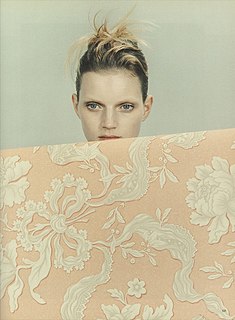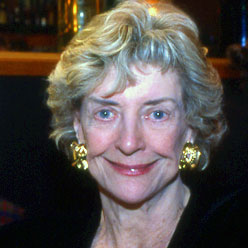A Quote by Joshua Foer
The art and science of memory is about developing the capacity to quickly create images that link disparate ideas. Creativity is the ability to form similar connections between disparate images and to create something new and hurl it into the future so it becomes a poem, or a building, or a dance, or a novel. Creativity is, in a sense, future memory.
Related Quotes
There is an interesting and new way to be excited about the fashion world today maybe. The traditional path of fashion as simple magazine images has dissolved - we are seeing new and innovative ways to share, create, and enjoy ideas. I am challenged to learn and explore paths of finding new photographers, stylists, and vision-makers online or through direct contact, connecting with ideas and creativity in new ways, and making images with different outlets. Sometimes more unbridled avenues and unconventional ways lead to things I wouldn't have thought of yet.
Poems, to me, do not come from ideas, they come from a series of images that you tuck away in the back of your brain. Little photographic snapshots. Then you get the major vision of the poem, which is like a giant magnet to which all these disparate little impressions fly and adhere, and there is the poem!
You create your future with the power of your intention. Intention is simply the conscious act of determining your future now. Health, harmony in relationships, happiness, money, creativity, and love will come to you in the future, based on your intentions now. Intend every day and create your future life.
I am myself a professional creator of images, a film-maker. And then there are the images made by the artists I collect, and I have noticed that the images I create are not so very different from theirs. Such images seem to suggest how I feel about being here, on this planet. And maybe that is why it is so exciting to live with images created by other people, images that either conflict with one's own or demonstrate similarities to them.
Our capacity to move forward as developing beings rests on a healthy relationship with the past. Psychotherapy, that widespread method for promoting mental health, relies heavily on memory and on the ability to retrieve and organize images and events from the personal pastIf we learn not only to tell our stories but to listen to what our stories tell us—to write the first draft and then return for the second draft—we are doing the work of memory.
A conditioned mind may be inventive; it may think up new ideas, new phrases, new gadgets; it may build a dam, plan a new society, and all the rest of it; but that is not creativity. Creativity is something much more than the mere capacity to acquire a technique. It is because this extraordinary thing called creativity is not in most of us that we are so shallow, empty, insufficient. And only the mind that is free can be creative.
If our entertainment culture seems debased and unsatisfying, the hope is that our children will create something of greater worth.But it is as if we expect them to create out of nothing, like God, for the encouragement of creativity is in the popular mind, opposed to instruction. There is little sense that creativity must grow out of tradition, even when it is critical of that tradition, and children are scarcely being given the materials on which their creativity could work






























